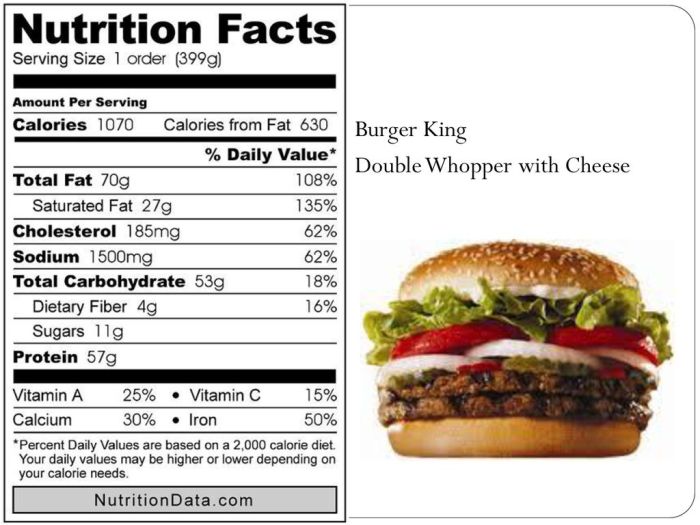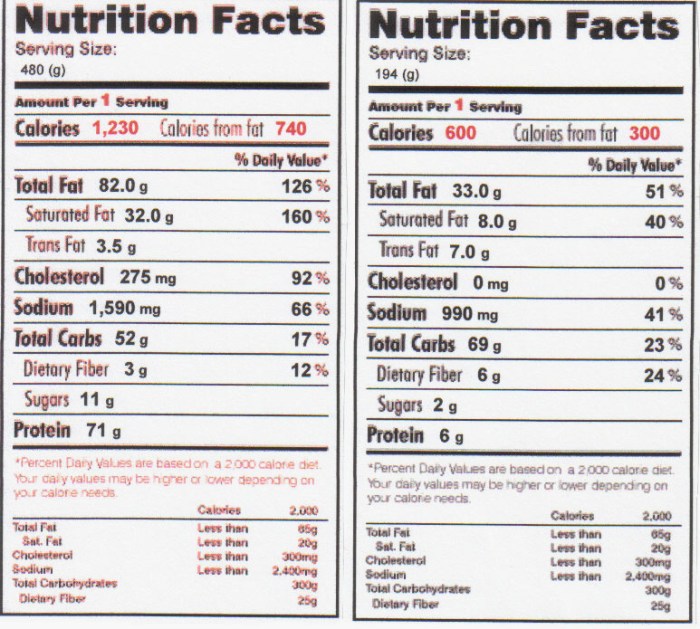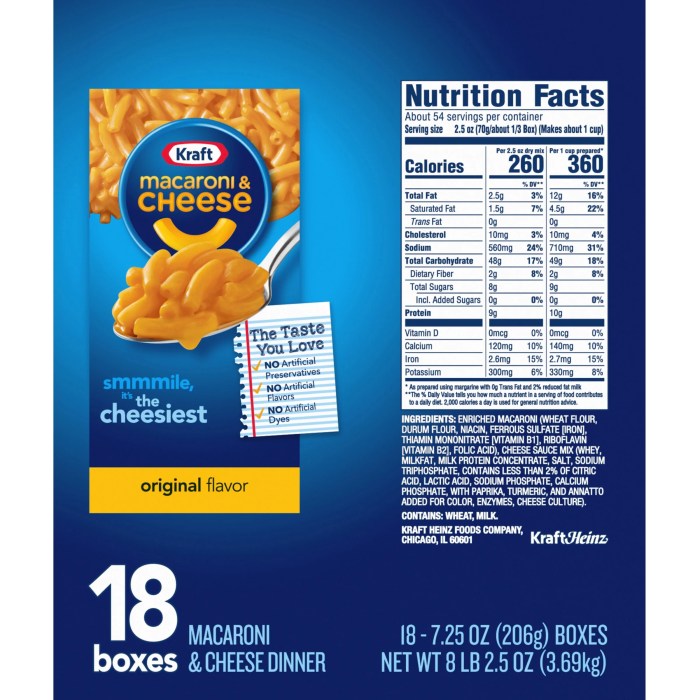Comparison with Other Fast Food Burgers

Nutrition whopper with cheese – Let’s cut through the marketing hype and get down to the nutritional brass tacks. The Whopper with Cheese, like many fast-food burgers, is undeniably delicious, but understanding its nutritional profile relative to competitors is crucial for making informed choices. This comparison will focus on key nutritional aspects, highlighting the differences and their potential health implications. We’ll be looking at calories, fat, and sodium – the big three when it comes to fast food impact.
The nutritional content of fast food burgers varies significantly across different chains and even within the same chain depending on size and customizations. Understanding these variations allows consumers to make choices that better align with their individual health goals and dietary restrictions. This isn’t about demonizing fast food; it’s about empowering consumers with knowledge.
Nutritional Comparison of Popular Burgers, Nutrition whopper with cheese
The following table provides a comparison of the nutritional information for three popular fast-food burgers: the Burger King Whopper with Cheese, McDonald’s Big Mac, and McDonald’s Quarter Pounder with Cheese. Note that these values can vary slightly depending on the specific location and preparation methods. Always check the nutritional information available at the restaurant or on their website for the most accurate data.
| Burger | Calories | Total Fat (g) | Saturated Fat (g) | Sodium (mg) |
|---|---|---|---|---|
| Whopper with Cheese (Burger King) | 700-750 | 40-45 | 15-20 | 900-1000 |
| Big Mac (McDonald’s) | 590 | 30 | 12 | 970 |
| Quarter Pounder with Cheese (McDonald’s) | 520-530 | 27-28 | 13-14 | 770 |
As you can see, the Whopper with Cheese generally contains a higher calorie, fat, and sodium count compared to the Big Mac and Quarter Pounder with Cheese. This difference is significant and should be considered when making dietary choices. While a single indulgence might not have drastic consequences, frequent consumption of high-calorie, high-fat, and high-sodium meals can contribute to weight gain, increased risk of heart disease, and other health problems.
Implications for Consumer Health
The substantial differences in nutritional profiles among these burgers directly impact consumer health. The higher calorie and fat content in the Whopper, for instance, contributes to a greater potential for weight gain compared to the other options. Similarly, the higher sodium levels in all three burgers highlight the importance of monitoring sodium intake to maintain healthy blood pressure.
Consumers should be aware of these differences and factor them into their overall dietary intake and health goals. Regular consumption of these burgers as part of an otherwise unhealthy diet could lead to various health complications over time. The key is moderation and balance.
Health Implications and Dietary Considerations

Let’s be frank: the Burger King Whopper with Cheese isn’t exactly a health food champion. While the occasional indulgence might not derail your fitness goals, regular consumption poses significant risks. Understanding these risks and making informed choices is crucial for maintaining your well-being. This section dives into the potential health consequences of frequent Whopper consumption, offering strategies for mindful inclusion (if at all) within a balanced diet.The Whopper with Cheese packs a considerable caloric punch, typically exceeding 700 calories, a significant portion of the recommended daily intake for many adults.
This high caloric density, coupled with its substantial fat and sodium content, contributes to potential weight gain, increased risk of heart disease, and other health problems. The saturated and trans fats present, particularly from the beef and cheese, can elevate LDL (“bad”) cholesterol levels, further increasing cardiovascular risk. The high sodium content can contribute to hypertension and water retention.
These are not trivial concerns; they represent real and potentially serious health implications.
High Calorie, Fat, and Sodium Intake: Associated Risks
The high calorie, fat, and sodium content of the Whopper with Cheese directly contributes to several health risks. The excessive calories can lead to weight gain and obesity, increasing the likelihood of developing type 2 diabetes, certain cancers, and osteoarthritis. The saturated and trans fats contribute to elevated LDL cholesterol, a major risk factor for heart disease and stroke.
Meanwhile, the high sodium content contributes to hypertension (high blood pressure), which significantly raises the risk of stroke, heart failure, and kidney disease. Consider the example of a person consuming a Whopper with Cheese daily; their increased risk profile becomes considerably amplified compared to someone who enjoys it only occasionally as part of a balanced, overall healthy diet.
This isn’t about deprivation, it’s about informed choices.
Recommendations for Mitigating Negative Health Impacts
It’s important to remember that moderation is key. Completely avoiding all treats is unrealistic and potentially detrimental to mental well-being. A balanced approach is far more sustainable. The following recommendations can help mitigate the negative health impacts associated with occasional Whopper with Cheese consumption:
- Choose wisely: If you decide to indulge, consider making healthier choices within your overall diet. A large salad or a lighter meal for the remainder of the day might help offset the high calorie and fat content of the burger.
- Portion control: Instead of a full Whopper, consider sharing it with a friend or opting for a smaller-sized burger option if available. This simple strategy can significantly reduce your overall calorie and fat intake.
- Balance your meals: Pair the Whopper with Cheese with a side of vegetables or a salad to increase your intake of fiber and micronutrients. This can help improve the overall nutritional profile of your meal.
- Increase physical activity: Regular exercise helps burn calories and maintain a healthy weight. Even moderate exercise, like a brisk walk, can significantly contribute to your overall health and help offset the caloric impact of the burger.
- Limit frequency: Treat the Whopper with Cheese as an occasional indulgence, not a regular part of your diet. Spacing out your consumption helps prevent the cumulative negative effects of high calorie, fat, and sodium intake.
FAQ Guide: Nutrition Whopper With Cheese
Is the Whopper with Cheese completely devoid of any nutritional value?
No, it contains some vitamins and minerals, though the quantities are relatively small compared to the overall calorie and fat content.
Can I eat a Whopper with Cheese on a regular basis and still maintain a healthy lifestyle?
Not recommended. Regular consumption due to its high calorie, fat, and sodium content can negatively impact your health. It’s best enjoyed occasionally as part of a balanced diet.
Are there healthier alternatives to the Whopper with Cheese?
Yes! Many fast-food chains offer healthier options, such as grilled chicken sandwiches or salads. You can also choose smaller portions or opt for healthier sides.
What are the main sources of sodium in a Whopper with Cheese?
The sodium primarily comes from the processed beef patty, cheese, and the burger’s sauces.



